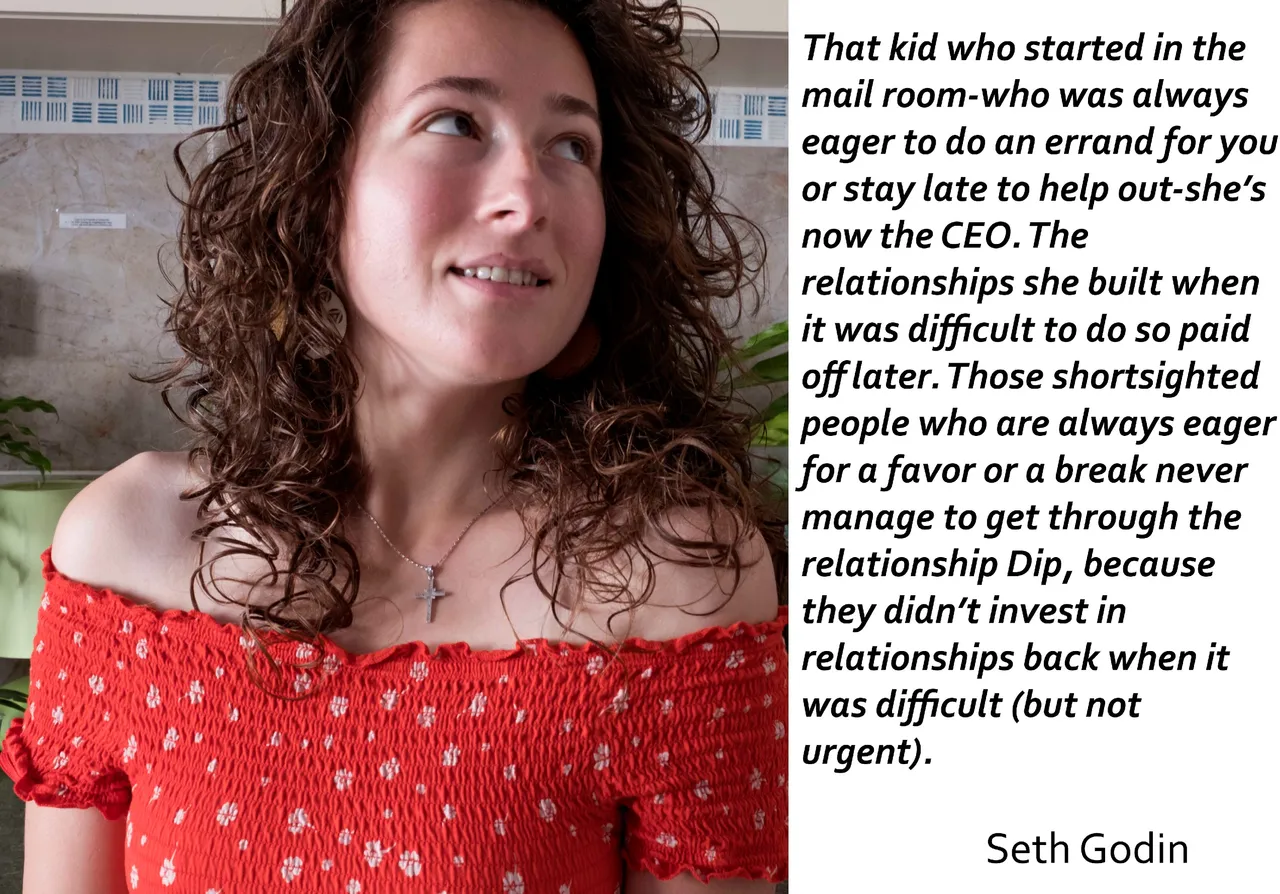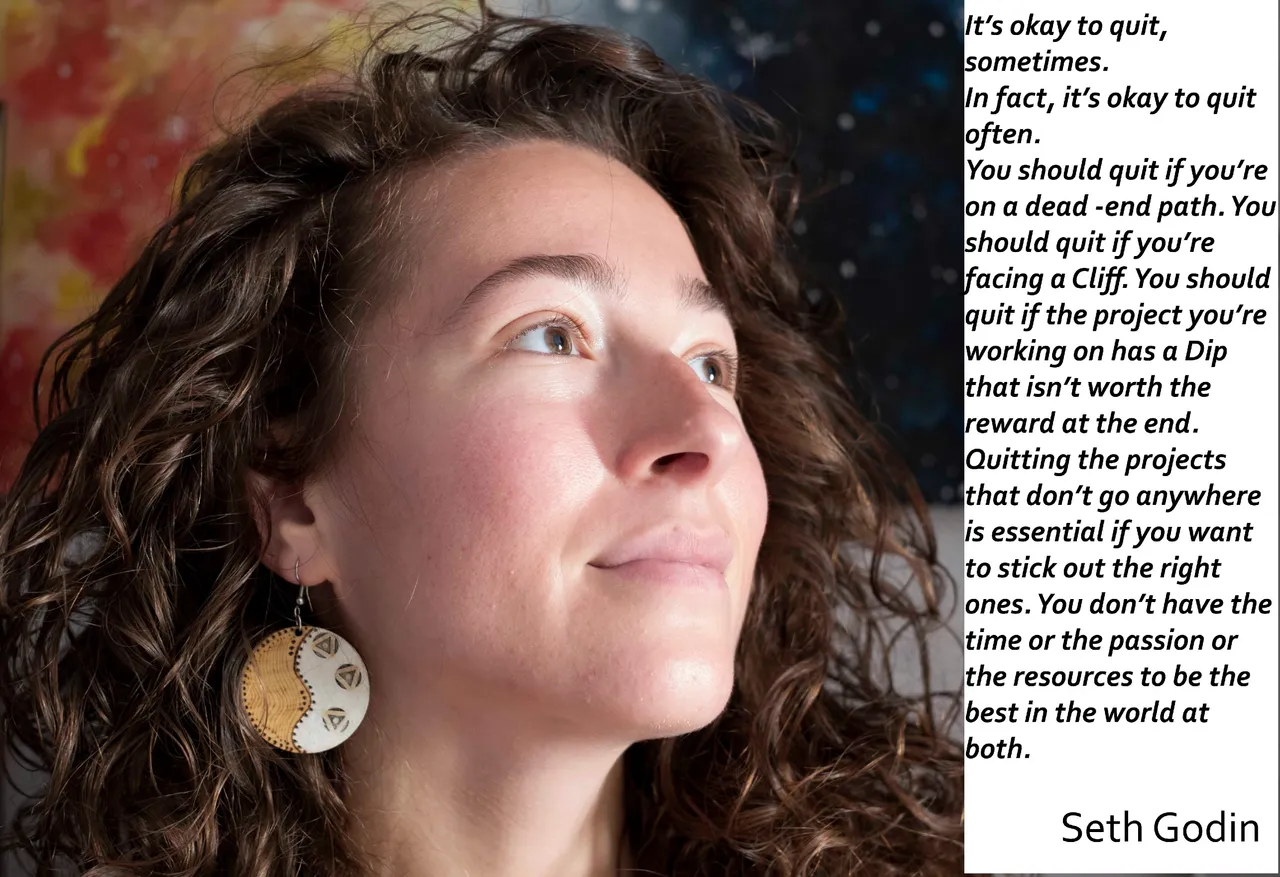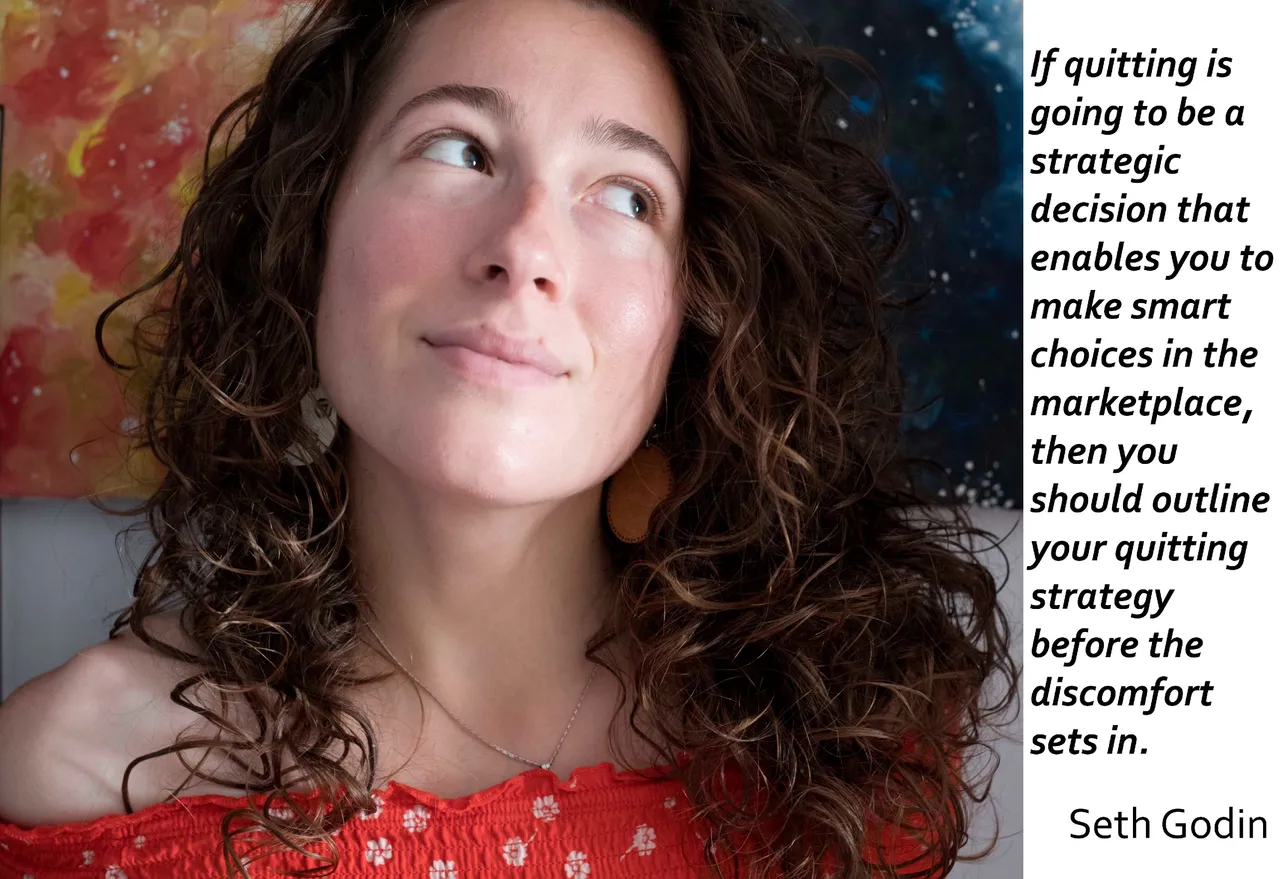I have chosen another very quick and easy read that will challenge the way you think about quitting.

Seth Godin wrote *** The Dip. The extraordinary benefits of knowing when to quit (and when to stick)***. I definetely wanted to know why quitting can become a good strategy as it kind of demolishes the myth of "Quitters never win and winners never quit".

I admit that I was guilty of thinking that the best way is to never quit on anything. Winning has become so praised that the slightest thought of abandoning something feels like failing.
The book starts with an interesting theory: if you do not plan to become the best in the world at something then you are doing it all wrong and you should quit whatever you are doing and set yourself to start something worthy, that will put you on the top. Scarcity creates value. Someone who specializes in something will be much more sought after than a person who is a Jack of all trades, doing all and excelling at nothing. Ouch. This statement might have hurt a lot of egos, including mine. But it is true. We do not have the energy and time to pursue 10 things at a time. We need to focus.

From school we are being taught that we need to excel at so many things. It is profusely wrong , said Godin. I agree. We need to specialize much faster and cut the energy loss on learning miscellaneous blabber.
Seth introduces the concept of Dip and Cul-de-Sac. In the video I explain both of them. Long story short you have to think about quitting when there is no light at the end of the tunnel for you. No chance to advance. No promotion. No growth. No worthy achievement. You are plateauing. It is not good or bad. It is just. The Cul-de-Sac is the dead end. You have to exit.
We have to learn when to quit in our relationships, marriages, jobs, quests. We also need to learn when to stay in the Dip and power through and overcome adversity because it is worth it on the long run. If you quit too soon you might blow your change at a good lovestory, career, friendship . If you do not quit then you lose so much more. The art consists in knowing When to quit and How to prepare a strategy in advance.

Do not wait for the discomfort to set in before you decide to quit your job. The best moment to quit is when it feels comfy and boring. Make a strategy, an exit plan.
In relationships it pays off to quit when all of your efforts are in vain. If you did your best to try and tell your partner the hurdles that both of you have to overcome and they refuse to change , to grow, to mature...it is time to let the relationship go. If instead you see effort, you see that it is worth pushing through the hard moments because the end reward of being together is worth it, then stay. Push through the dip. Commit to doing the not so comfortable things. Have the difficult conversations and actions. Because it is worth it.
The Dip that is meant for you is a place where you see the light at the end of the tunnel. Ok, maybe I have a dull boring job. And I do not like it. But if with those money I can fund a course, an action that will guide me towards what I really want to do, then it is worth to suck it up a little more and strategize for my exit.
I am a bit torn about the plan B and plan C strategy as I sometimes believe that it is better to burn all bridges in order to make sure you truly succeed. For example when I left for Denmark I had no plan B. I did not consider that the job will be too hard or that I will not fit in. I left determined to build a tattoo portfolio and experience no matter what. Back in Romania I had to plan B in regards to a job in case I failed in Denmark. So in this matter I think a bit different than Godin. In the end you must pick the mental strategies that work the best for you.
